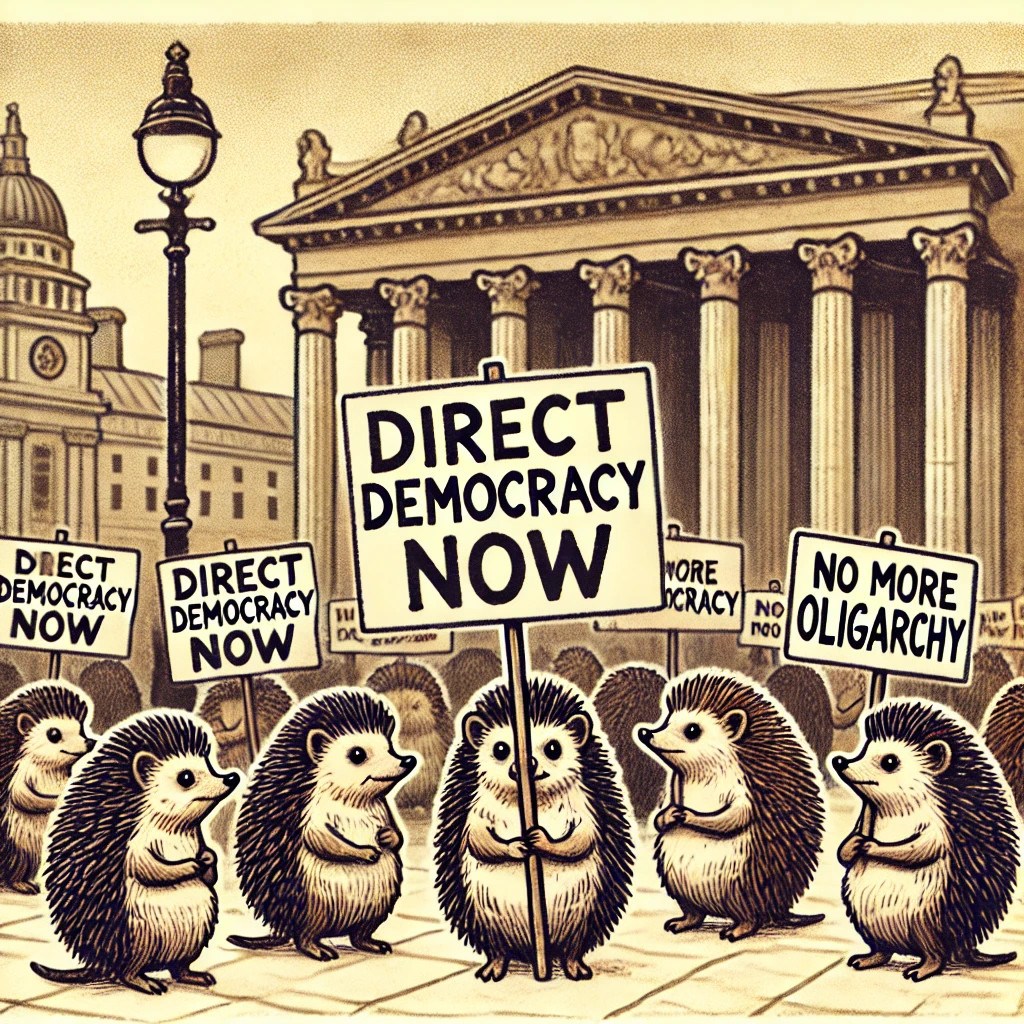At the beginning of this year we argued that the repercussions of the far-right Capitol attack are evident in the continued entrenchment of far-right ideologies within American society.
Now, nearly four years after the storming of the US Capitol on January 6th, 2021, the event continues to reverberate through US politics and society.
With the presidential election just days away on November 5th, the political landscape is once again at a critical juncture. Donald Trump, buoyed by Elon Musk’s public endorsement and the financial backing of America Pac, has dominated the early primaries and polls. Musk’s involvement in supporting Trump, including his controversial $1 million voter sweepstakes in Pennsylvania, highlights the increasing role of influential figures in shaping political outcomes, regardless of their impact on democratic norms.
Trump’s campaign rhetoric, including promises to end the war in Lebanon and restore “peace and stability” in the Middle East, has resonated with some communities, such as Arab Americans in Dearborn, Michigan, despite his history of Islamophobia. This paradox further underscores the complexities of far-right populism in the US.
The race between Trump and Kamala Harris is currently neck and neck, with polls indicating a tight contest. Harris, campaigning on a message of unity and consensus-building, faces an uphill battle against Trump’s polarizing rhetoric. The atmosphere is further charged by ongoing domestic and international crises, including the devastating war on Gaza. The conflict has become a focal point of debate, with Trump and other far-right figures using it to criticize Biden and Harris’s foreign policy, portraying it as weak and ineffective.
With extreme political polarization characterizing the new normal, Washington state has, not surprisingly, activated the National Guard in response to heightened tensions and threats to election infrastructure.
Trump’s promises of policies like expanding oil drilling, dismantling environmental protections, and granting full immunity to police signify the sustained social-historical currents that run deep beneath the US political landscape and that the right-wing draws from.
The popular support for Trump’s presidential campaign corroborates our view. The Capitol riot, initially viewed through various analytical lenses—from Donald Trump’s incendiary rhetoric to the active role of far-right groups like the Proud Boys—has thoroughly evolved into a broader narrative.
These perspectives, transcending political alignments, contribute to a deeper understanding of the far-right as a manifestation of a larger crisis in liberal democracy. Whether Trump or Harris wins the upcoming election, the underlying issues that drive the far-right remain deeply entrenched, and a social-historical perspective is essential for assessing these movements beyond individual leaders or electoral outcomes.
The Social-Historical Context: A Castoriadis Perspective
To this end, we find Greek-French Philosopher and revolutionary Cornelius Castoriadis’s social-historical viewpoint, which merges societal and historical constructs as reflections of each other, particularly poignant.
Castoriadis’s concept of the social-historical challenges traditional Western views of history and society, suggesting that these entities are intrinsically intertwined through time.
This framework is crucial in understanding how the Trump administration’s actions, including the appointment of far-right figures and policies such as the controversial family separation initiative, reflect deeper societal undercurrents.
These policies didn’t emerge in a vacuum but were the result of an evolving political and social landscape that normalized extreme right-wing ideologies and movements. This normalization, in turn, led to an increase in far-right popularity, challenging the notion of these ideologies as mere political aberrations.
Long-Term Effects: Liberal Democracy in Crisis
Four years on, the repercussions of the Capitol attack are evident in the continued entrenchment of far-right ideologies within American society.
Trump’s significant voter base in the ongoing primaries, despite widespread criticism of his policies and legal challenges, signals a worrying trend towards accepting, if not endorsing, the right’s extremist views.
This phenomenon isn’t isolated to the US; similar long-standing patterns of liberal backsliding and the rise of nationalist, fascist and Nazi sentiments are observable globally, for instance the recent far-right revolt in the UK, exemplified by the West’s continued war on immigrants and refugees, the tightening of borders, and the ongoing conflict between Israel and Hamas, with the West’s unyielding support for Israel despite overwhelming civilian casualties in Gaza, including many children.
These developments underscore a crisis in Western liberal democracy, demanding a reevaluation of traditional political structures and ideologies.
The Decisive Moment: A Call for Radical Imagination
As we confront these ongoing challenges, we are at a decisive juncture that calls for the activation of the radical imagination.
This crucial moment presents a choice between liberal democracy and the technical domination of nature which the state and capitalism represent or the emancipatory social movements of past and present—those struggling for autonomy, self-governance, and direct democracy. In this sense, it is a choice between autonomy or barbarism.
The Capitol attack, while initially shocking, was a manifestation of deeper fissures within the fabric of US liberal democracy.
Trump’s recent electoral gains signal that these deep fissures are not going away any time soon, regardless of the electoral outcome.
A social-historical understanding of these events recognizes their roots in larger societal dynamics past and present, beyond the presidents and states which help legitimize them and bring them to manifestation.
The implication, of course, is that protests, strikes, policy campaigns, and petitions alone are not enough to address the far-right and the failings of liberal democracy: states, presidents, prime ministers, and all forms of representative democracy must be abandoned.
This perspective is not only crucial for analyzing past and present events but also for shaping a future that aligns with the autonomous project of genuine direct-democracy.
